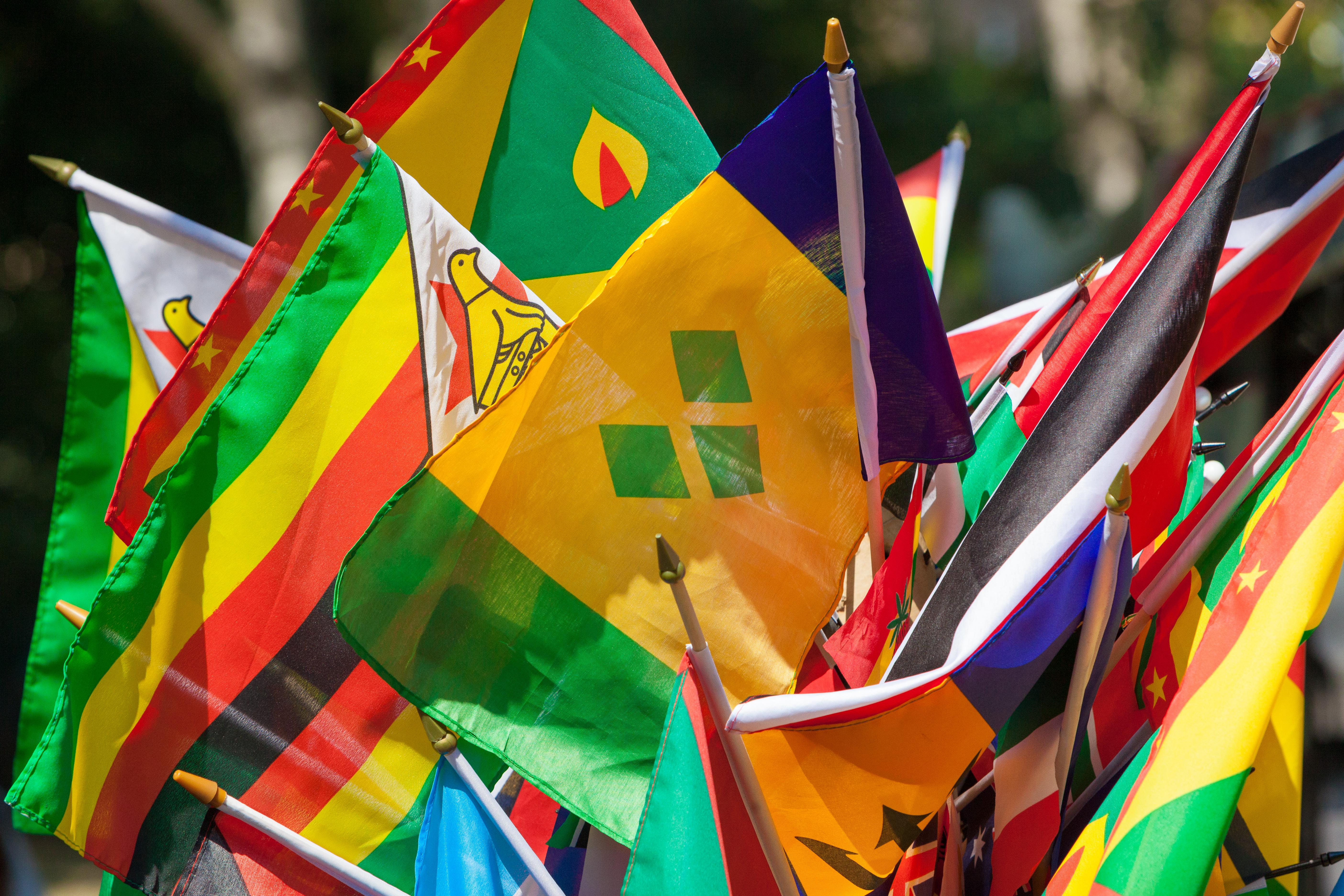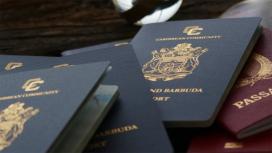Blog • Published on:October 14, 2024 | Updated on:October 15, 2024 • 12 Min
Due Diligence in Caribbean Citizenship by Investment: Ensuring Safe and Legal Investments
The Citizenship by Investment (CBI) industry has experienced significant growth and change in recent years, with Caribbean programs at the forefront of many developments. As global demand for second citizenship options increases, these programs have taken significant steps to enhance their due diligence processes in Caribbean citizenship by investment programs, ensuring the integrity of their offerings.
History of Due Diligence in CBI
Due diligence has always been a critical component of CBI programs, but its scope and sophistication have evolved considerably over time.
In the early days of CBI, due diligence focused primarily on basic background checks and document verification. The aim was to screen out applicants with criminal records or other glaring red flags.
However, as CBI programs grew in popularity and the geopolitical landscape became more complex, the need for more robust due diligence became apparent.
Concerns about money laundering, terrorist financing, and reputational risks drove a shift towards more comprehensive vetting.
In response, CBI jurisdictions began to introduce more stringent requirements, such as police certificates from multiple countries, detailed source of funds documentation, and in-depth reputational checks. They also started to leverage advanced technologies and forge partnerships with specialist due diligence firms to enhance their capabilities.
Today, due diligence in the CBI industry is a multi-faceted, risk-based endeavor that goes beyond just screening for criminal activity. It encompasses a thorough examination of an applicant's background, source of wealth, business affiliations, and potential reputational or security risks.
The aim is to gain a holistic understanding of each applicant and ensure only legitimate, low-risk individuals are granted citizenship.
This evolution has been driven by a recognition that robust due diligence is essential to the long-term sustainability and legitimacy of CBI programs. By continuously strengthening their vetting processes, Caribbean jurisdictions are working to maintain the integrity of their programs and protect the value of their citizenship for deserving investors.
Now, let's take a closer look at how due diligence is evolving in the Caribbean CBI landscape.
Due Diligence Checking Process: Strengthened Vetting and Ongoing Monitoring
One of the most notable developments is the introduction of more robust initial vetting and ongoing monitoring of approved citizens.
In June 2024, St. Kitts and Nevis announced the establishment of a Continuing International Due Diligence (CIDD) Unit to be headquartered inEurope.
Led by Ian M. Queeley, the OECS ambassador to Morocco and former Police Commissioner, the CIDD will continuously monitor the conduct and activities of economic citizens to ensure they continue meeting the high standards that qualify them for citizenship.
This proactive, post-approval due diligence marks a significant shift. It demonstrates a commitment to keeping bad actors out and preserving program integrity over time.
By monitoring any criminal or unethical behavior that emerges after citizenship is granted, Caribbean countries aim to identify and address potential risks swiftly.
The CIDD and similar ongoing monitoring mechanisms provide an added layer of assurance to the international community. They signal that Caribbean governments take seriously their responsibility to admit only upstanding individuals and take corrective action if any citizens fail to maintain those standards.
This can bolster confidence among key allies and bodies like the EU, addressing concerns about CBI program security.
As the CBI industry continues to evolve, we can expect due diligence practices to keep advancing in step.
The Caribbean's innovative approaches, like St. Kitts' CIDD unit for ongoing monitoring, may well become models that other CBI jurisdictions adopt and adapt.
The fundamental need to uphold program integrity while scaling to meet demand is a shared challenge that will drive further innovation.
We may see more countries establish dedicated, independent bodies tasked with continuously vetting economic citizens. The logic of the CIDD - preventing bad actors from exploiting CBI status and protecting the jurisdiction's reputation - is compelling for any nation with a CBI program. Variations on this theme, tailored to each country's governance structures and risk factors, could become an emerging norm.
What Are the Harmonised Standards and Information Sharing For Due Diligence
Another critical development is the move toward regional coordination and harmonisation of due diligence practices. The five Caribbean CBI countries signed a landmark Memorandum of Agreement (MoA). While much attention focused on its provisions for a $200,000 price floor, the MoA also included essential due diligence elements.
Notably, signatories committed to implementing harmonised due diligence standards, engaging in information sharing, and striving for equal treatment of applicants across jurisdictions.
This collaborative approach recognises that each country's program's reputation and perceived legitimacy can impact the others. By working together to uphold high, consistent standards, Caribbean nations aim to safeguard the integrity of CBI as a concept.
Standardised information sharing is particularly critical in an increasingly sophisticated transnational financial crime era. When vetting bodies in each country can access the same intelligence, it becomes easier to identify patterns, connect dots, and spot red flags that could otherwise slip through the cracks between jurisdictions.
This cooperation makes the due diligence ecosystem as a whole more effective.

Today, due diligence in the CBI industry has evolved into a comprehensive, risk-based process that thoroughly examines an applicant’s background, wealth, and affiliations to ensure only legitimate, low-risk individuals are granted citizenship.
Why is Caribbean CBI Investing in Technology and Expertise?
Caribbean CBI units are also leveraging technology to enhance their vetting capabilities. From artificial intelligence to blockchain, new tools are helping automate manual checks, identify risk patterns, and secure sensitive data. While human expertise remains critical, technology can make the due diligence process:
- faster,
- more accurate, and
- more scalable to meet rising demand.
Many Caribbean governments are also investing in top-tier due diligence professionals to lead their vetting efforts. St. Lucia's CIU, for example, is headed by a former senior risk manager for JP Morgan.
By combining regional expertise with global experience in financial crime prevention, compliance, and risk management, CBI units are building teams adept at navigating an evolving threat landscape.
Investors and other stakeholders can expect an increasingly dynamic, technology-driven, and specialised due diligence landscape in the future.
As more advanced AI, blockchain, and data analytics tools come online, vetting processes will become faster, smarter, and more predictive. CBI units will likely deepen their engagement with regional and global partners to stay ahead of evolving financial crime and security threats.
At the same time, there will be a balance to strike between leveraging cutting-edge tech and ensuring the human expertise to analyze and act on the intel it surfaces contextually.
The most effective due diligence of the future will marry machine efficiency with human judgment.
Investors can expect to interact with CBI units that are digitally sophisticated but also people-centric in their approach.
Importance of Third-Party Partnerships and Independent Audits in Due Diligence for Caribbean Citizenship by Investment
Strategic partnerships with specialist third-party due diligence firms are another way Caribbean programs are enhancing their vetting rigor and credibility.
Working with leading global providers in areas like KYC/AML screening, risk intelligence, and enhanced due diligence can complement in-house capabilities and demonstrate commitment to international best practices.
Some Caribbean governments are also engaging independent auditors to assess their CBI units' operations, controls, and compliance with relevant laws and standards.
St. Kitts and Nevis' new CBI Board of Governors, for instance, is tasked with commissioning an annual external audit. Such independent validation can provide valuable assurance to investors, partners, and watchdog bodies.
Importance of Due Diligence in Protecting CBI Program Integrity
The Caribbean's enhanced due diligence measures don't just protect the receiving countries; they also protect the integrity and reputation of CBI programs as a whole.
By preventing bad actors from obtaining citizenship and revoking it from those who abuse the privilege, these safeguards help preserve CBI as a legitimate, mutually beneficial option for deserving investors and nations alike.
This is especially important as CIP programs become an increasingly mainstream and globalised proposition. With investors coming from all corners of the world and demand expected to keep rising, a proactive and adaptive approach to due diligence is essential.
Caribbean leaders recognise that sustainable growth in this space depends on upholding integrity.

With the rise of AI, blockchain, and data analytics, CBI units will see faster and more predictive vetting processes, while maintaining a crucial balance between leveraging technology and relying on human expertise to address complex financial crime and security risks.
How Due Diligence in Caribbean CBI Programs is Addressing Global Concern through a Proactive Approach
The evolution of due diligence inCaribbean CBI programs is also a response to concerns raised by international bodies such as the European Union, the United States, and financial oversight organisations.
By proactively addressing these concerns, Caribbean nations are safeguarding the future of their CBI programs and demonstrating their commitment to global security and financial integrity.
Key initiatives in this regard include:
- Compliance with FATF recommendations: Countries like St. Kitts and Nevis have implemented changes in line with Financial Action Task Force (FATF) guidelines, such as establishing the CIU as a separate entity.
- Enhanced information sharing: The pan-Caribbean MoA facilitates greater information sharing between jurisdictions, helping to prevent "jurisdiction shopping" by undesirable applicants.
- Ongoing monitoring: Initiatives like the CIDD Unit address concerns about the potential misuse of citizenship after it has been granted.
- Revocation provisions: Caribbean countries have emphasised their willingness to revoke citizenships obtained fraudulently, demonstrating a commitment to maintaining program integrity.
By taking these proactive steps,Caribbean CBI programs are not only addressing current concerns but also positioning themselves to withstand future scrutiny and challenges.
How Caribbean CBI Programs Due Diligence Evolves in the Age of CBI Globalisation
As Caribbean CBI programs continue to evolve, so does their approach to marketing and outreach.
The globalisation of these programs' marketing efforts has led to increased visibility and a more diverse applicant pool. This, in turn, has necessitated more sophisticated due diligence processes capable of handling a more comprehensive range of backgrounds and circumstances.
Key aspects of this globalised marketing approach include:
- Multi-lingual outreach: CBI units are now communicating in multiple languages to reach potential applicants from diverse linguistic backgrounds.
- Cultural sensitivity training: Staff involved in the application and due diligence processes are receiving training to better understand and navigate cultural differences.
- International partnerships: Caribbean countries are forming alliances with reputable international firms to assist in marketing and due diligence efforts.
- Digital presence: CBI programs are leveraging social media and online platforms to reach potential applicants globally, necessitating enhanced digital due diligence capabilities.
A More Premium Product
Crucially, the Caribbean's moves to strengthen due diligence dovetail with its shift toward a more premium CBI offering. Across the board, investment thresholds have increased in line with the new regional price floor. With higher costs come higher expectations around program quality, security, and international standing.
The enhanced vetting measures being implemented help justify those higher price points in the eyes of investors. Knowing that Caribbean CBI status is more challenging to obtain and more straightforward to lose for nefarious actors, investors can have more confidence in the value and rights they hold as economic citizens. This peace of mind becomes part of the premium product.
Similarly, the more selective and compliance-oriented approach to due diligence aligns with key target markets for Caribbean CBI going forward.
Stricter vetting may rule out some applicants from higher-risk jurisdictions. But it boosts the program's appeal among the law-abiding international business and investment community the region hopes to court.
Why Enhanced Due Diligence Benefits Investors
For investors, The Caribbean's drive to enhance the standards of CBI due diligence for investors is fundamentally a good thing. Robust vetting processes protect the value and legitimacy of the citizenship they are obtaining.
The more selective and compliance-oriented a program is, the more weight and prestige that citizenship carries on the global stage.
Knowing that fellow economic citizens are being carefully screened and continuously monitored gives investors peace of mind.
It assures them that they are gaining membership in a community of upstanding global citizens, not just purchasing a passport. This reputational assurance is invaluable in an era of increasing public scrutiny of CBI.
Enhanced due diligence also helps safeguard the political stability and international standing of the countries offering citizenship. Robust vetting keeps CBI on a sustainable footing by preventing bad actors from undermining the program or tainting the jurisdiction's image.
This protects investors' interests over the long term, as the program and country remain viable and reputable.
Of course, investors can expect rigorous vetting to go both ways. They will need to be prepared to undergo in-depth background checks and to maintain clean records going forward.
But for the vast majority of law-abiding investors, this is a process they are happy to participate in. It is part and parcel of gaining a valuable citizenship that opens up new opportunities.
In the end, investors benefit from the assurance that their fellow CBI participants, the program administrators, and the granting nation itself are all committed to the same high standards of integrity, security, and compliance. This shared commitment is what gives citizenship its worth and meaning.

Caribbean CBI programs are enhancing their vetting rigor and credibility through strategic partnerships with third-party due diligence firms and independent auditors, ensuring compliance with international best practices and offering greater assurance to investors and global stakeholders.
Caribbean CBI Program is Leading the Way Forward with Due Diligence Practices
As the CBI industry expands and mainstreams, the due diligence practices being pioneered in the Caribbean offer a glimpse of the future. The region's proactive, tech-savvy, and standards-driven approach lights the path for other jurisdictions to follow.
By modeling best practices like continuous monitoring, information sharing, independent auditing, and more, Caribbean programs are helping to establish a new benchmark for effective CBI vetting worldwide.
Of course, this process of innovation and elevation is ongoing. As new tools, threats, and expectations emerge, Caribbean CBI units will need to keep adapting and advancing their due diligence capabilities.
But the strong foundations now being put in place - in terms of expert talent, technological infrastructure, international partnerships, and beyond - position the region well for whatever comes next.
For investors, this forward-thinking mindset should offer reassurance. It shows that Caribbean leaders are not content to rest on their laurels but are proactively future-proofing their CBI programs to meet rising demand and standards.
By staying at the vanguard of due diligence best practices, they are working to ensure that a Caribbean CBI remains a mark of distinction and opportunity for deserving investors long into the future.
Due Diligence in Caribbean Citizenship by Investment Recap
In a world of increasing mobility, connectivity, and accountability, robust due diligence is becoming a prerequisite for any successful CBI program. The Caribbean is embracing this reality and charting a standards-driven path forward.
As a result, it is well-positioned to lead the way as the investment migration industry continues to grow and evolve in exciting new directions.
To know more about due diligence in CBI, contact Savory & Partners to book a comprehensive consultation with one of our experts.
Written By

Alice Emmanuel
Alice Emmanuel is an expert in residency and citizenship by investment, specializing in government compliance and program optimization. With over 8 years of experience, she has guided high-net-worth individuals through acquiring global mobility and new citizenships, particularly in Europe, the Caribbean, and the Middle East. Alice's in-depth knowledge of Middle Eastern residency programs makes her a trusted advisor for investors seeking security and diversification in the region.
Related Articles









Recently Published









Book a free consultation


